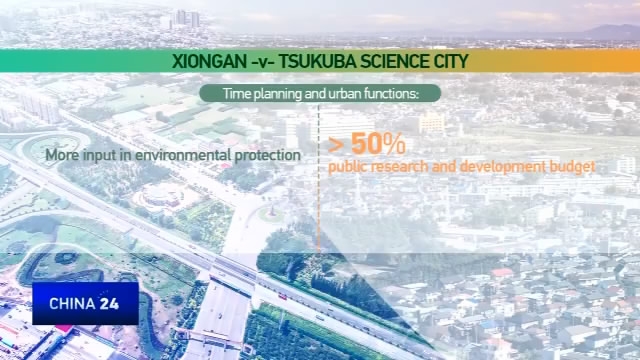
22:16, 21-Apr-2018
Xiongan New Area: Comparison with Japan's Tsukuba Science City
01:22

To better understand Xiongan's urban planning strategy, let's compare it with a similar project in Japan: Tsukuba Science City. CGTN's Sun Tianyuan has more.
They're both relatively close to their respective capitals: Tsukuba is only an hour away from Tokyo by train; while the 30-minute Beijing-Xiongan inter-city rail will be opened later this year. Xiongan is being designed to bear some of Beijing's so-called "non-capital" functions, and play a part in the coordinated development of the Beijing-Tianjin-Hebei region. Tsukuba was established in the 1960s. Through the construction of a "science park", its aim was to draw national research institutes away from Tokyo. Tsukuba now hosts about 30 such institutes and more than 200 private ones. One in ten of its residents are involved in research. According to China's State Council, nearly 50 Chinese tech companies are willing to establish branches in Xiongan; and ten reputable Beijing universities say they will also establish a presence there. Tsukuba has gradually become one of the world's key sites for government-industry collaborations in basic research. It's said that nearly half of Japan's public research and development budget is invested there. For Xiongan, planners are focusing much of their attention on environmental protection, as Hebei province has had issues with water, air and soil pollution for years.

SITEMAP
Copyright © 2018 CGTN. Beijing ICP prepared NO.16065310-3
Copyright © 2018 CGTN. Beijing ICP prepared NO.16065310-3